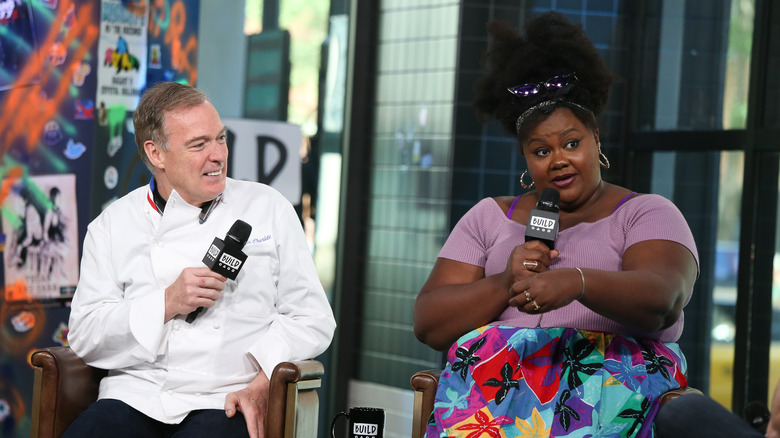Why Nailed It! Halloween Is Shorter Than Other Seasons
Unlike traditional cooking shows, "Nailed It!" doesn't take itself too seriously. It's hosted by comedian Nicole Byer rather than a renowned culinary expert or baker, which is likely why every episode exudes hilarity (per Cheat Sheet). "I really liked [the show's concept], and I felt like I'd be able to toe the line between judging people's creations and being funny, but not being too mean," Byer said to Vulture. Inspired by Pinterest fails, the premise of "Nailed It!" is for bakers to recreate a displayed treat to the best of their abilities (via Business Insider). For the contestants, who are far from professional bakers, this means melted icing, tipping cakes, and decorations that just won't stay put.
The show itself might be funny, but the prize money is nothing to laugh about. According to The Post and Courier, winners of each competition take home $10,000 and a limited edition trophy. Unfortunately, some contestants never got to take the stage for season seven. Due to issues involving crew members and show producers, the Halloween special filmed earlier this year had to be sliced in half (per Deadline).
Crew members walked out
Fans of the popular Netflix show "Nailed It!" had fewer episodes to enjoy than usual when season 7 was released earlier this month (per Deadline). This is due to a permanent production shutdown after crew members went on strike, walking out of the studio in the midst of filming. The crew teamed up with the International Alliance of Theatrical Stage Employees (IATSE) and tried to reach a mutual agreement with Magical Elves, the show's producers. Magical Elves, however, had no interest in bargaining, so they spoke with Netflix and cut the season at episode four. "[Magical Elves would] rather shut down than sign a union contract. They're notoriously nonunion," a source said to Deadline.
According to its website, the IATSE was formed in 1893 in New York. There, stagehands from 11 cities came together in agreement to fight for better working conditions and wages. Today, they have around 150,000 workers from various entertainment mediums.

